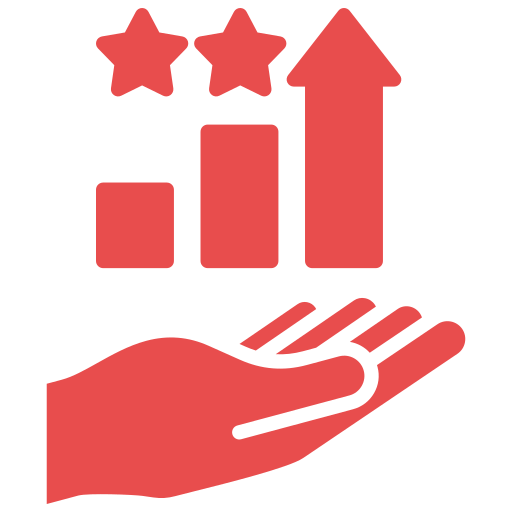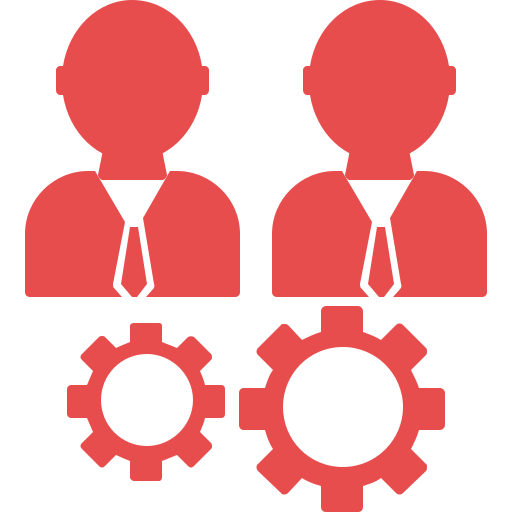
What is Salesforce Development - A Complete Overview
Introduction
In the symphony of business evolution, where every note represents innovation, connectivity, and customer-centricity, one platform has composed its own legendary tune - Salesforce.
Imagine a world where customer relationships are not just managed but are elevated to an art form. Salesforce, born in the digital crucible of 1999, has not just weathered the waves of change; it has ridden them, setting the standard for what a Customer Relationship Management (CRM) platform can achieve.
As we embark on this guided tour through the labyrinth of Salesforce development, let’s not just look at it as a technology; let's see it as the digital maestro orchestrating businesses toward harmonious success. To understand the present and future of Salesforce development, we must first glance back at the roots that nourished this towering tech giant.
Our journey begins with the vibrant history of Salesforce, a narrative painted with bold strokes of innovation and a commitment to revolutionize the way businesses connect with their clientele.
So, buckle up for an expedition into the heart of Salesforce development, where every line of code is a brushstroke on the canvas of customer experience, and every developer is an artist shaping the future of business interactions.
Let’s delve into the essence of Salesforce development, unravel its importance in the corporate landscape, and discover why having a skilled Salesforce developer is akin to having a virtuoso conductor for your business's success.
History of Salesforce
In the late 90s, when the digital landscape was in its infancy, Marc Benioff and Parker Harris envisioned a revolutionary approach to customer relationship management.
In 1999, Salesforce was born as a cloud-based CRM solution, breaking away from the conventional software model dominating the market. The creators were inspired by a desire to establish a platform that would allow businesses to manage client contacts effortlessly.
Salesforce's launch signaled a shift from traditional, on-premises CRM systems, ushering in a ground-breaking Software-as-a-Service (SaaS) paradigm. This moves freed enterprises from physical infrastructure restrictions, providing a dynamic and scalable solution available from anywhere with an internet connection.
Salesforce grew into a multi-cloud ecosystem, not just embracing CRM but also expanding into a full platform with Sales Cloud, Service Cloud, Marketing Cloud, and more. Salesforce has become synonymous with cutting-edge technology and customer-centric solutions due to the company's dedication to innovation, client success, and a strong community culture.
Now that we have learned about the history of Salesforce it’s time to address the elephant in the room and let’s learn about Salesforce development.
What Is Salesforce Development?
Salesforce development is the art and science of tailoring the Salesforce platform to meet the unique needs of businesses. It involves the creation, customization, and optimization of applications within the Salesforce ecosystem, transforming the platform from a robust CRM solution into a tailored digital powerhouse.
At its core, Salesforce development encompasses the crafting of custom solutions using a variety of tools provided by the platform. This includes the creation of bespoke applications, the customization of existing functionalities, and the implementation of intricate workflows that align precisely with the business processes of an organization.
Developers engaged in Salesforce development are akin to architects designing a digital infrastructure that seamlessly integrates with daily operations. They utilize technologies such as Apex (Salesforce’s programming language), Visualforce, and Lightning components to bring forth a user experience that goes beyond out-of-the-box capabilities.
This process ensures that businesses can not only manage customer relationships efficiently but can also streamline internal processes, automate workflows, and derive actionable insights from their data.
In essence, Salesforce development is the catalyst for businesses to move beyond the standard capabilities of a CRM platform, unlocking the full potential of Salesforce to drive innovation, efficiency, and growth. It's about making Salesforce not just a tool, but a strategic asset uniquely tailored to propel a business toward its goals.
Now if it’s such a good investment for your business it’s only smart to learn as to why you need it for your business in detail.
Need For Salesforce Development For
In the dynamic arena of modern business, where customer expectations are ever evolving, the need for Salesforce development stands as a cornerstone for organizational success.
Here are six compelling reasons why businesses of all sizes are increasingly recognizing the imperative of investing in Salesforce development:
Tailored Solutions:
- Challenges of One-Size-Fits-All: Every firm is special, with its own set of operations, workflows, and goals. Standard, off-the-shelf CRM systems sometimes fall short of meeting these unique requirements.
- Customization Power: Salesforce development empowers businesses to tailor their CRM solutions precisely to their requirements. Custom applications, workflows, and data models can be crafted to align seamlessly with specific business processes.
Scalability:
- Growing Pains: As businesses expand, traditional systems may struggle to keep up with increased data, users, and complexities.
- Seamless Growth: Salesforce development ensures that the CRM system scales organically, accommodating growing demands without compromising performance. This scalability is crucial for businesses aiming to expand their operations and customer base.
Enhanced User Experience:
- Beyond Default Interfaces: Out-of-the-box solutions frequently provide general user interfaces that may not correspond to the specific demands and preferences of a certain user population.
- User-Centric Design: Salesforce development allows for the creation of customized user interfaces, resulting in a more intuitive and user-friendly experience. This not only enhances user satisfaction but also boosts overall productivity.
Integration Capabilities:
- Data Silos: Many businesses rely on a variety of tools and platforms, leading to data silos that hinder efficient collaboration and decision-making.
- Unified Ecosystem: Salesforce development facilitates seamless integration with third-party applications and internal systems. This integration ensures a unified ecosystem where data flows seamlessly across different facets of the business.
Automation and Workflow Optimization:
- Manual Bottlenecks: Manual data entry, redundant tasks, and inefficient workflows can impede operational efficiency.
- Efficiency Through Automation: Salesforce development enables the automation of routine tasks and the optimization of workflows. This not only reduces the burden on employees but also minimizes errors, leading to improved overall efficiency.
Compliance and Security:
- Industry Regulations: Different industries have varying compliance requirements, and adherence to these regulations is non-negotiable.
- Secure by Design: Salesforce development allows businesses to implement robust security measures and ensures compliance with industry-specific regulations. This is particularly crucial in sectors such as healthcare, finance, and legal services where data security and regulatory adherence are paramount.
The need for Salesforce development, therefore, extends beyond mere customization. It is a strategic investment that aligns the CRM system with the unique DNA of a business, fostering agility, efficiency, and innovation.
As businesses navigate the complex and ever-changing landscape of customer interactions, Salesforce development emerges as the key differentiator that empowers organizations to not just keep pace but lead in their respective industries. By leveraging the full potential of Salesforce development, businesses can embark on a journey where technology is not a limitation but a catalyst for growth.
Now that you know the importance of having Salesforce for your business it’s about time to learn about Salesforce developer’s developer and why you need one for your business.
Benefits of Salesforce Development
In the fast-paced symphony of business, where every note counts, Salesforce development emerges as the crescendo that elevates your business performance to new heights. Let's dive into the riveting world of benefits that Salesforce development brings to the stage, transforming your CRM experience into a symphony of innovation and efficiency.
Tailored Solutions, Not One-Size-Fits-All:
- Forget the constraints of generic solutions. With Salesforce development, your business gets VIP treatment. Every app, workflow, and process is finely tuned to the rhythm of your unique needs, ensuring a perfect fit.
Efficiency Unleashed:
- Bid farewell to the era of manual tasks and mundane processes. Salesforce development is your ticket to streamlined workflows and automated routines, freeing up time for your team to focus on what truly matters.
Dynamic User Experiences:
- Say hello to interfaces that dance to your business tune. Salesforce developers craft visually stunning and user-friendly experiences using Visualforce and Lightning components, making every interaction a delightful performance.
Real-Time Decision Orchestration:
- Harness the power of data with robust reporting and analytics tools. Salesforce development transforms your data into a symphony of insights, allowing you to make informed decisions in real time, steering your business strategy with precision.
Agility in the Face of Change:
- In the ever-shifting business landscape, agility is your secret weapon. Salesforce development ensures that your CRM strategy adapts and evolves alongside industry changes, giving your business the nimbleness to stay ahead of the competition.
Integration Harmony:
- Break down the walls of data silos. Salesforce development creates a unified business ecosystem by seamlessly integrating Salesforce with your favorite tools and systems, ensuring a harmonious flow of information across your organization.
Cost-Efficiency Encore:
- Salesforce development isn’t just about innovation; it’s a smart investment. Automate repetitive tasks, minimize errors, and optimize resource utilization, translating into cost savings that resonate with your bottom line.
Competitive Edge Overture:
- Welcome to the stage where customization is your competitive edge. With Salesforce development, you're not just keeping up; you’re leading the charge, responding swiftly to market demands and staying on the cutting edge of innovation.
So, let Salesforce development be the virtuoso that transforms your CRM from a static tool into a dynamic force for growth. Elevate your business performance, embrace the benefits, and let the symphony of success play on!
Challenges of Salesforce Development
Embarking on the journey of Salesforce development is like setting sail in uncharted waters—exciting, dynamic, and at times, challenging. Let’s unravel the complexities and dance through the challenges that developers might encounter in this ever-evolving Salesforce ecosystem.
Complexity of the Platform:
- Symphony of Features: The richness of Salesforce comes with a plethora of features and tools. Navigating this expansive landscape can be challenging, requiring developers to constantly update their knowledge to harness the full potential of the platform.
Apex Code Complexity:
- The Art of Coding: While Apex, Salesforce’s programming language, empowers developers to create robust solutions, mastering it can be demanding. Crafting efficient, scalable code requires a deep understanding of both Apex and the underlying Salesforce data model.
Governor Limits:
- Harmony in Constraints: Salesforce imposes governor limits to ensure fair usage of resources. Developers must compose their solutions within these limits, which, at times, can feel like striking the right notes in a delicate composition.
Data Security Challenges:
- Securing the Score: Salesforce is entrusted with sensitive data, and ensuring its security is paramount. Developers need to navigate the complexities of data access and permissions, orchestrating a balance between accessibility and security.
Integration Hurdles:
- Syncing the Ensemble: Integrating Salesforce with other systems poses challenges. Data synchronization, handling external APIs, and ensuring seamless communication between diverse platforms demand strategic thinking and technical finesse.
User Adoption Resistance:
- Harmonizing with Users: Even the most finely tuned Salesforce solution might face resistance from users. Overcoming this challenge requires not just technical prowess but also effective communication and user training to ensure a smooth transition.
Continuous Updates and Releases:
- Keeping in Tune: Salesforce’s regular updates and releases bring exciting features but can also pose challenges. Developers must stay vigilant, ensuring that their solutions remain compatible and optimized with the latest innovations.
Testing and Deployment Orchestration:
- Ensuring a Flawless Performance: Rigorous testing and deployment processes are vital to a successful solution. Balancing the need for thorough testing with the urgency of deployment can be a delicate act.
Balancing Customization and Out-of-the-Box Features:
- Customizing the Melody: Striking the right balance between customization and leveraging out-of-the-box features is an ongoing challenge. Over-customization may lead to complexity, while underutilization might mean missing out on valuable functionalities.
User Interface Design Challenges:
- Crafting Visual Symphony: Designing intuitive and user-friendly interfaces can be challenging. Aligning user expectations with technical possibilities requires a keen understanding of both design principles and Salesforce capabilities.
In the vibrant tapestry of Salesforce development, challenges are not obstacles but opportunities to refine the melody. Every hurdle, every complex line of code, contributes to the symphony of innovation and growth. As developers navigate these challenges, they not only master a powerful platform but also become maestros, orchestrating success in the ever-evolving world of Salesforce.
Use Case of Salesforce Development
- Healthcare Industry: Streamlining Patient Care and Data Management
Challenges:
- Fragmented patient data across systems.
- Inefficient communication between healthcare providers.
Salesforce Development Solutions:
- Centralized patient data management using custom objects.
- Implementation of Salesforce Health Cloud for a unified view of patient records.
- Integration with communication tools for seamless collaboration among healthcare professionals.
Benefits:
- Enhanced patient care through quick access to comprehensive health records.
- Improved communication and collaboration among healthcare teams.
- Financial Services: Optimizing Operations and Enhancing Customer Experiences
Challenges:
- Manual and time-consuming account management processes.
- Ineffective customer engagement strategies.
Salesforce Development Solutions:
- Automation of account management workflows.
- Integration with external financial data sources.
- Implementation of Salesforce Marketing Cloud for personalized customer interactions.
Benefits:
- Streamlined account management, reducing processing times.
- Enhanced customer experiences through targeted and personalized communication.
- Nonprofit Organizations (NGOs): Boosting Donor Engagement and Operational Efficiency
Challenges:
- Limited visibility into donor interactions and contributions.
- Manual and inefficient fundraising processes.
Salesforce Development Solutions:
- Customization of Salesforce for donor management.
- Implementation of Salesforce Nonprofit Cloud for streamlined fundraising.
- Integration with marketing tools for donor communication.
Benefits:
- Improved donor engagement and relationship management.
- Increased efficiency in fundraising operations.
- Education Sector: Enhancing Student Management and Engagement
Challenges:
- Disjointed student information systems.
- Limited communication channels with students.
Salesforce Development Solutions:
- Centralized student information using custom data models.
- Implementation of Salesforce Education Cloud for student engagement.
- Integration with communication platforms for effective outreach.
Benefits:
- Improved student management and tracking.
- Enhanced student engagement and communication.
These use cases showcase the versatility of Salesforce development, providing tailored solutions to address industry-specific challenges. Whether in healthcare, finance, nonprofit sectors, or education, Salesforce development proves to be a transformative force, optimizing processes and elevating operational efficiency.
Who Is a Salesforce Developer?
A Salesforce developer is a specialist in the design, customization, and implementation of solutions on the Salesforce platform. Salesforce, a cloud-based customer relationship management (CRM) platform, offers a number of tools and services that businesses can use to manage client interactions and optimize key business operations.
Picture them as linguistic virtuosos, fluent in the language of Salesforce — Apex and Visualforce — translating business dreams into tangible, tech-driven realities. They're like GPS navigators in the expansive Salesforce landscape, weaving through clouds, modules, and features with ease.
When digital storms hit, Salesforce Developers are the troubleshooters, untangling glitches and ensuring smooth, error-free performances. They're the customization maestros, molding Salesforce to fit business workflows like a bespoke suit.
What Does a Salesforce Developer do?
Customization:
Creating and customizing applications, workflows, and processes within the Salesforce platform to align with the unique requirements of a business.
Coding:
Writing code in Salesforce-specific languages such as Apex (a Java-like programming language for Salesforce) and using Visualforce or Lightning components to design and implement user interfaces.
Integration:
Connecting Salesforce with other systems, databases, or third-party applications to ensure a seamless flow of data across the entire business ecosystem.
Data Modeling:
Designing and implementing efficient data structures within Salesforce to store and retrieve information in a way that meets the business needs.
Problem Solving:
They diagnose and resolve technical issues, debug code, and ensure Salesforce solutions overall stability and performance.
Continuous Learning:
Staying up to date with the latest features, updates, and best practices within the Salesforce ecosystem.
Why Do You Need Salesforce Developers for your business?
In the intricate tapestry of modern business, where every thread represents a facet of success, the role of a Salesforce developer emerges as the master weaver.
Here are six compelling reasons why having dedicated Salesforce developers is not just advantageous but crucial for the success and growth of your business:
Expertise in the Salesforce Ecosystem:
- Navigating the Salesforce Landscape: The Salesforce platform is vast and multifaceted, comprising various clouds, modules, and functionalities. Navigating this landscape requires a deep understanding of its intricacies.
- Specialized Knowledge: Salesforce developers possess specialized knowledge of the platform. From Sales Cloud to Service Cloud, they are adept at leveraging the full spectrum of Salesforce tools to address diverse business needs.
Customization and Configuration:
- Tailoring Salesforce to Your Business: Standard, out-of-the-box solutions might not fully align with the unique processes and requirements of your business.
- Crafting Bespoke Solutions: Salesforce developers have the skill to customize and configure the platform, creating bespoke applications, workflows, and functionalities that precisely fit the contours of your business processes.
Problem Solving and Troubleshooting:
- The Dynamics of Problem Resolution: In a digital ecosystem, challenges are inevitable. Identifying, diagnosing, and solving problems swiftly is paramount.
- Developer’s Toolbox: Salesforce developers are problem-solving virtuosos. They possess the expertise to troubleshoot issues, whether it's debugging code, resolving integration glitches, or ensuring data consistency.
Continuous Improvement:
- Staying Ahead of the Curve: The digital landscape evolves rapidly. To stay competitive, businesses must embrace new features, updates, and best practices.
- Adaptive Development: Salesforce developers are at the forefront of changes within the platform. They ensure that your Salesforce instance is not just current but evolves alongside the latest innovations and capabilities.
Integration Mastery:
- Breaking Down Data Silos: Businesses often rely on an array of tools and systems. Integrating these seamlessly with Salesforce is pivotal to achieving a cohesive data flow.
- Interconnected Systems: Salesforce developers specialize in integrating Salesforce with other systems. This interconnectedness ensures that data is not isolated but flows seamlessly, fostering a unified and efficient business ecosystem.
Adaptability to Change:
- Navigating Shifting Sands: The business landscape is dynamic, with shifting customer expectations, market trends, and technological advancements.
- Agility in Development: Salesforce developers are adaptable to change. Whether it's implementing updates, responding to emerging trends, or aligning with evolving business strategies, they ensure that your Salesforce platform remains agile and responsive.
In essence, Salesforce developers are not just technicians; they are strategic architects shaping the digital infrastructure of your business. They bridge the gap between your vision and the capabilities of the Salesforce platform, ensuring that the CRM system is not a static tool but a dynamic asset that propels your business toward its goals.
Benefits Of Having a Salesforce Developer
In the realm of business evolution, where digital landscapes shape success stories, having a skilled Salesforce developer is akin to possessing the master key to unlock the full potential of your CRM strategy.
The advantages extend far beyond mere customization; they encompass strategic enhancements, efficiency boosts, and a competitive edge.
Here are eight pivotal benefits of having a Salesforce developer dedicated to the success of your business:
Increased Efficiency:
- Streamlined Workflows: Salesforce developers can optimize and streamline workflows, automating routine tasks and reducing manual efforts.
- Time Savings: Efficiency gains translate to time savings for your team, allowing them to focus on high-value tasks rather than mundane, repetitive activities.
Optimized Customer Engagement:
- Personalized Customer Journeys: Salesforce developers can create customized customer journeys, tailoring interactions based on preferences, behaviors, and historical data.
- Enhanced Communication: Personalized engagement strategies lead to more meaningful interactions, fostering stronger relationships with customers.
Data-driven Decision Making:
- Real-time Insights: Salesforce's reporting and analytics solutions are extensive. Developers may use these technologies to create real-time insights, allowing them to make data-driven decisions.
- Business Intelligence: Businesses may make educated judgements, foresee trends, and respond proactively to market movements with accurate and timely data.
Adaptability to Industry Changes:
- Agile Development: Salesforce developers stay abreast of industry changes, including updates and new features within the Salesforce platform.
- Swift Adaptation: Businesses equipped with Salesforce developers can swiftly adapt their CRM strategies to align with evolving industry standards and market dynamics.
Cost Savings:
- Automation Reduces Costs: Salesforce developers can automate repetitive tasks, reducing the likelihood of errors and minimizing the need for manual intervention.
- Operational Efficiency: Improved efficiency leads to cost savings by optimizing resource utilization, ultimately contributing to the bottom line.
Competitive Edge:
- Quick Response to Market Demands: Customized Salesforce solutions empower businesses to respond quickly to changing customer preferences and market demands.
- Innovation: The ability to leverage the latest Salesforce features and technologies gives businesses a competitive edge by staying ahead of the curve.
Enhanced Collaboration:
- Unified Digital Workspace: Salesforce developers can integrate Salesforce with other business tools, creating a unified digital workspace.
- Seamless Collaboration: Integration ensures that data flows seamlessly across different departments, fostering collaboration and breaking down organizational silos.
Scalability:
- Supports Business Growth: As businesses grow, Salesforce developers ensure that the CRM system scales to accommodate increasing data, users, and functionalities.
- Future-Ready: Scalable solutions developed by Salesforce experts ensure that the CRM infrastructure remains robust and adaptable to future business needs.
In the orchestra of business operations, a Salesforce developer is the conductor, orchestrating a harmonious blend of technology and strategy. They transform Salesforce from a static tool into a dynamic asset, aligned with the unique needs and aspirations of your business.
Steps to Becoming a Successful Salesforce Developer
Embarking on the journey to becoming a successful Salesforce developer requires a deliberate and strategic approach. Here are eight key steps to guide aspiring developers toward mastering the art and science of Salesforce development:
Learn the Basics:
Understand the Salesforce platform's fundamentals before beginning your journey. A CRM overview is required, along with an understanding of various clouds (Sales, Service, Marketing, etc.).
Acquire Technical Skills:
Mastering Apex and Visualforce: Apex is Salesforce's programming language, and Visualforce is a framework for building user interfaces. Develop proficiency in these technologies to be able to create robust and customized solutions on the Salesforce platform.
Hands-on Experience:
Apply Theoretical Knowledge: Theory alone won't suffice. Set up a Salesforce Developer environment and start applying your knowledge. Create custom applications, workflows, and data structures to gain hands-on experience.
Understand Data Modeling:
Designing Efficient Data Structures: Learn the principles of data modelling in Salesforce. Understand how to design efficient and scalable data structures that align with the specific needs of a business.
Certifications:
Earn Relevant Certifications: Salesforce offers a range of certifications for developers. Obtain certifications such as the Salesforce Certified Platform Developer to validate your skills and enhance your credibility in the job market.
Stay Updated:
Follow Salesforce Releases and Updates: The Salesforce platform evolves continuously with regular releases. Stay informed about new features, updates, and best practices by following official Salesforce release notes and developer documentation.
Build a Portfolio:
Showcase Your Work: Create a portfolio showcasing the projects you've worked on. Highlight the challenges you've overcome, the impact of your contributions, and any innovative solutions you've implemented. This portfolio becomes a tangible demonstration of your skills to potential employers.
Engage with the Community:
Developers are an active and vibrant part of the Salesforce community. Engage with fellow developers by joining forums and attending community events. You can learn and collaborate more through networking in addition to expanding your knowledge.
Skills Required to Be a Successful Salesforce Developer
Here are six essential skills that contribute to the success of a Salesforce developer:
Apex Programming:
Description: Apex is the programming language used in Salesforce for backend development. It allows developers to create robust and scalable business logic that runs on the Salesforce platform.
Importance: Proficiency in Apex is fundamental for a Salesforce developer. It includes understanding variables, control structures, and triggers, and using SOQL (Salesforce Object Query Language) to interact with Salesforce data.
Visualforce and Lightning Components:
Description: A Salesforce application can be customized using Visualforce, a framework for creating custom user interfaces. A dynamic web app can be developed using lightning components, a UI framework for creating mobile and desktop apps.
Importance: A successful Salesforce developer must be adept at creating visually appealing and user-friendly interfaces. Understanding both Visualforce and Lightning Components allows developers to build diverse and responsive user experiences.
Data Modeling and Management:
Description: Salesforce is a data-centric platform, and effective data modelling is crucial for designing efficient and scalable solutions. This involves understanding relationships, data types, and how to structure data for optimal performance.
Importance: The ability to design and manage data structures ensures that the Salesforce database is well-organized, facilitating seamless data interactions and reporting.
Integration Skills:
Description: Salesforce rarely operates in isolation. Integration skills involve connecting Salesforce with other external systems, applications, or databases to ensure a seamless flow of data.
Importance: Integrating Salesforce with other business tools fosters a unified ecosystem, preventing data silos and enabling a holistic view of business processes.
Problem-solving
Description: Successful Salesforce developers are adept problem solvers. They can diagnose issues, troubleshoot errors, and implement effective solutions to ensure the smooth functioning of the Salesforce platform.
Importance: The ability to troubleshoot and resolve issues efficiently is crucial for maintaining the integrity and performance of Salesforce solutions.
Soft Skills:
Description: Soft skills, including communication, teamwork, and the ability to understand and translate business requirements into technical solutions, are vital for success.
Importance: Salesforce developers often work collaboratively with different teams, including business stakeholders, administrators, and other developers. Clear communication and the ability to translate technical concepts for non-technical audiences are essential for project success.
Programming Languages
Description - Salesforce development frequently entails more than simply Apex. Knowledge of various programming languages like SQL, HTML, Visual Force, JavaScript, etc. may be useful depending on the situation. For example, JavaScript may be used for front-end development in Lightning Components, while SQL can be used for database interactions.
Importance: Having a diversified language skill set allows a developer to tackle a wider range of jobs inside the Salesforce ecosystem.
Conclusion
In the ever-evolving landscape of digital business, Salesforce development emerges not merely as a technical practice but as an art form that transforms CRM into a dynamic force for innovation.
From its humble origins to its status as a cloud giant, Salesforce's history reflects a journey of constant adaptation and leadership in the CRM domain. The need for Salesforce development is not a luxury but a strategic imperative. It goes beyond customization, unlocking the potential for businesses to streamline processes, enhance user experiences, and stay agile in the face of change.
Having a Salesforce developer is not only about leveraging technical skills but also embracing a mindset of continuous learning, problem-solving, and effective communication. As businesses seek efficiency, adaptability, and customer-centricity, a skilled Salesforce developer becomes the linchpin for success, orchestrating a symphony where technology harmonizes with business strategy.
In this era of dynamic customer relationships, the journey to becoming a successful Salesforce developer is a path toward mastery, innovation, and a profound impact on the digital transformation of businesses.
-
Previous Post
Top 20 Salesforce Consulting Companies in The USA 2023
Post a comment Cancel reply
Related Posts
Understanding Salesforce Customer 360: A Comprehensive Guide
Managing customer relationships has never been simple. A business may have thousands, or even millions,…
Top Future Salesforce CRM Trends 2025
The world of Customer Relationship Management (CRM) continues to evolve rapidly, and as we move…
Types Of Salesforce License and Costs
Salesforce is a powerhouse in the world of CRM, helping businesses manage customer relationships, streamline…
Top B2b E-commerce Trends In 2025
The world of B2B eCommerce is changing fast. What used to be a slow, relationship-driven,…

 About Melonleaf
About Melonleaf Awards
Awards Our Team
Our Team






 Events
Events Webinars
Webinars Blogs
Blogs Press Releases
Press Releases

 Salesforce
Salesforce Alliance Partners
Alliance Partners Healthcare Prowess
Healthcare Prowess Logistics
Logistics Real Estate
Real Estate Automotive Industry
Automotive Industry Education Industry
Education Industry Manufacturing
Manufacturing Media & Entertainmet
Media & Entertainmet Nonprofit
Nonprofit Insurance
Insurance Aerospace & Defence
Aerospace & Defence













